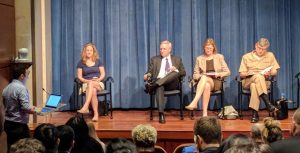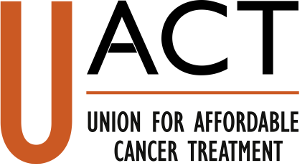On May 11, 2018, the U.S. Department of Health & Human Services (DHHS) held a “Stakeholder Listening Session” in the HHS Hubert H. Humphrey Building Auditorium, 200 Independence Ave, SW, Washington, DC 20201 to prepare for the SEVENTY-FIRST WORLD HEALTH ASSEMBLY A71/1 Geneva, Switzerland 21–26 May 2018

The provisional agenda for the WHA is here: http://apps.who.int/gb/ebwha/pdf_files/WHA71/A71_1-en.pdf
The meeting went from 3pm to about 4pm and about 45 participants had 2 minutes for each intervention on the many agenda item. Most speakers represented industries such as the manufacturers or the sugar related good industries.
UACT registered to take the floor for the following item: 11.7 Preparation for the third High-level Meeting of the General Assembly on the Prevention and Control of Non-communicable Diseases, to be held in 2018
See Documents A71/14 and A71/14 Add.1
Here is my intervention:
The Union for Affordable Cancer Treatment (UACT) is an international network of people affected by cancer, their family members and friends, people who take care of people with cancer, health care professionals and cancer researchers — all committed to increasing access to effective cancer treatment and care. We are alarmed by the rapidly escalating cost of cancer medication and we believe that cancer medicines and other essential medical tools such as diagnostic tools should be affordable.
As cancer patients and advocates we are highly encouraged by the convening of a High-Level meeting at the United Nations on September 27, 2018 in New York. Discussions at the UN level on efforts to prevent and control cancer are crucial for patients globally. We believe patients and their advocates are important stakeholders and should be part of the solution.
UACT is concerned that the issue of access to cancer treatment has not received sufficient attention, and that the negotiations have allowed commercial interests excessive influence on the topics being discussed. This has resulted so far in avoiding outcomes that would advance patient interests on matters concerning the pricing and affordability of drugs for cancer. This is unfortunate, because there are vast (and deadly) disparities of access to new medicines. Issues regarding innovation and access to medical technologies have a global dimension that should be considered in the context of these UN negotiations.
Failures to fully recognize the conflicts of interest that drug companies have when shaping “solutions” have dire consequences on cancer patients, their families and society as a whole. It is our hope that the US delegation at the 71st WHA takes a strong stand and will ensure that patients are considered true partners in search of innovative and efficient solutions.
